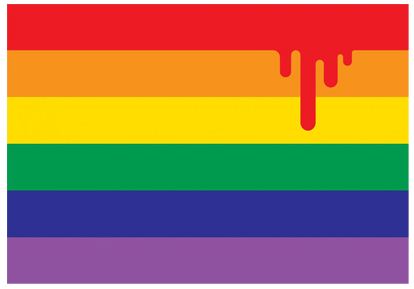Published: 29 November 2012
Region: Worldwide
 The Associated Press has decided to discourage the use of the terms “homophobia,””ethnic cleansing” and a number of other terms so the agency nixed them from its Style Book in recent months.
The Associated Press has decided to discourage the use of the terms “homophobia,””ethnic cleansing” and a number of other terms so the agency nixed them from its Style Book in recent months.

The AP online Style Book now says that “-phobia,” “an irrational, uncontrollable fear, often a form of mental illness” should not be used “in political or social contexts,” including “homophobia” and “Islamophobia.” It also calls “ethnic cleansing” a “euphemism,” and says the AP “does not use ‘ethnic cleansing’ on its own. It must be enclosed in quotes, attributed and explained.”
“Ethnic cleansing is a euphemism for pretty violent activities. A phobia is a psychiatric or medical term for a severe mental disorder. Those terms have been used quite a bit in the past, and we don’t feel that’s quite accurate,” AP Deputy Standards Editor Dave Minthorn told Politico.
“When you break down ‘ethnic cleansing,’ it’s a cover for terrible violent activities. It’s a term we certainly don’t want to propagate,” Minthorn continued. “Homophobia especially — it’s just off the mark. It’s ascribing a mental disability to someone, and suggests a knowledge that we don’t have. It seems inaccurate. Instead, we would use something more neutral: anti-gay, or some such, if we had reason to believe that was the case.”
But the psychologist who coined the term “homophobia” believes that AP’s decision reverses progress that has been made in changing the public’s view of gays.
George Weinberg said since he introduced the word “homophobia” in his 1972 book Society and the Healthy Homosexual, it has been immensely effective in showing that it’s the people who are prejudiced against gays who have a psychological problem, not gays themselves, reports Voice of America.
In the Guardian, Patrick Strudwick says “homophobia” accurately describes the condition of being anti-gay, a condition he says is, without exception, at least partly fuelled by fear.
“Fear of the unknown, fear of unwanted sexual attention, fear of gender roles being flouted, fear of humanity being wiped out by widespread bumming, fear of a plague of homosexuals dismantling marriage, the family, the church and any other institution held vaguely dear. And, of course, never forget: fear of what lurks repressed and unacknowledged in the homophobe. Irrational fear. It’s a phobia, people”, writes Strudwick in the Guardian.
National Lesbian and Gay Journalists Association (NLGJA) president Michael Triplett wrote to Poynter that the AP decision has “set off some interesting conversations among NLGJA members.”
“The general sense is that the AP is probably correct in terms of the literalism of the word ‘homophobia’ and that it really is not the best way to describe anti-gay actions or motives. On the other hand, it leaves writers without a term — like racism or sexism — that describes anti-gay sentiment”, says Triplett.
NLGJA’s current guidance on the word advises writers to “Restrict to germane usage, such as in quotations or opinions. Use ‘LGBT right opponents’ or a similar phrase instead of ‘homophobes’ when describing people who disagree with LGBT rights activism.”
